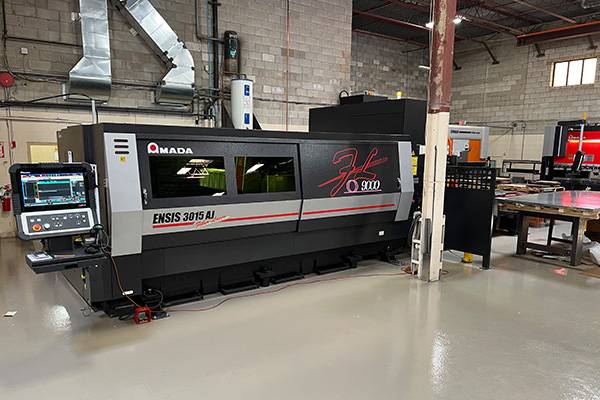The CIMA Operational Level is the first stage of the Chartered Institute of Management Accountants (CIMA) qualification, designed for individuals who are looking to build a career in management accounting. It provides essential knowledge and skills that help professionals support business operations, financial management, and strategic decision-making. In this article, we’ll explore what the CIMA Operational Level entails, the subjects covered, and how it sets the foundation for a successful career in finance and business management.
What is the CIMA Operational Level?
The CIMA Operational Level focuses on the core areas of management accounting, financial reporting, and business management. It is aimed at individuals who want to pursue a career in business and finance by giving them practical skills in managing financial information, improving business processes, and supporting management teams in making data-driven decisions. This level equips you with the expertise to work in roles such as management accountant, financial analyst, or business consultant.
The Operational Level is the first of three levels in the CIMA qualification. After completing the Operational Level, students can progress to the CIMA Management Level and ultimately the CIMA Strategic Level, which focuses on higher-level management and business strategy.
Key Subjects of the CIMA Operational Level
The CIMA Operational Level consists of three subjects, each designed to equip students with the fundamental skills required for effective management accounting and business operations:
E1 – Managing Finance in a Digital World This subject introduces the role of finance in business, focusing on how financial information is used to drive business decisions. It covers topics such as financial systems, digital technologies, financial reporting, and how these elements work together to ensure efficient financial management.
P1 – Management Accounting This paper delves into the principles of management accounting, including budgeting, cost control, and performance management. Students learn how to assess and manage costs, as well as how to analyze financial data to provide insights for business decision-making. The goal is to understand how management accounting can be used to improve the financial health of an organization.
F1 – Financial Reporting and Taxation This module covers the basics of financial accounting, reporting, and taxation. It focuses on the preparation and analysis of financial statements, including the income statement, balance sheet, and cash flow statement. It also teaches how tax laws impact business operations and how to apply relevant accounting standards.
CIMA Operational Level Exam Format
The exams for the CIMA Operational Level are computer-based and consist of two parts:
Objective Test Questions (OTQs): These questions assess the student’s knowledge and understanding of the key topics in the syllabus. The questions may include multiple-choice, true/false, and scenario-based questions. OTQs test both theoretical knowledge and practical understanding.
Case Study Exam: The case study exam assesses the student’s ability to apply their knowledge to real-world business scenarios. The case study presents a business situation that requires students to analyze financial data, make decisions, and propose strategies to improve business performance. This exam is practical and tests a student’s problem-solving and analytical skills.
How to Succeed in the CIMA Operational Level?
To succeed at the CIMA Operational Level, you’ll need to follow a structured approach to your studies. Here are a few tips to help you excel:
Create a Study Plan: Set aside regular time for studying, breaking the syllabus into manageable sections. This will ensure that you cover all the material needed to pass your exams.
Use Practice Exams: Practice exams and past papers are crucial to familiarizing yourself with the exam format and types of questions you will encounter. Practice will help you identify areas where you need to improve and boost your confidence.
Stay Consistent with Revision: Consistent revision is key to retaining the material. Review your notes regularly and don’t wait until the last minute before exams to start studying.
Join Study Groups: Studying with others can help you understand complex topics better and allow you to exchange ideas. Join online forums or local study groups to collaborate with fellow CIMA students.
Utilize Study Resources: CIMA offers a range of official study resources, including textbooks, study guides, and online materials. Many accredited learning providers also offer additional study support and workshops.
Why Choose CIMA Operational Level?
Here are some compelling reasons why pursuing the CIMA Operational Level is a great choice for anyone looking to build a career in finance and business:
Global Recognition: CIMA is recognized worldwide as a leading qualification in management accounting. The CIMA Operational Level opens doors to job opportunities in various industries and geographical locations.
Practical Skills for the Workplace: The focus on practical learning means that students develop skills they can immediately apply in the workplace. These skills are crucial for roles such as financial analyst, business consultant, or management accountant.
Career Advancement: The CIMA qualification, starting with the Operational Level, is a pathway to senior roles in finance and management. As you progress through the qualification, you will be prepared for leadership positions like financial controller, finance director, and CFO.
Flexibility in Learning: CIMA offers flexible study options, including online learning, part-time study, and classroom-based courses. This flexibility is ideal for individuals who are working or have other commitments while pursuing their qualification.
Conclusion
The CIMA Operational Level is an essential step for anyone interested in a career in management accounting and finance. With its focus on practical skills and real-world business applications, it provides the foundation necessary to succeed in business and management roles. The Operational Level sets you on a clear path toward completing the full CIMA qualification, opening up opportunities for career advancement and global recognition.
By following a structured study plan, practicing consistently, and utilizing available resources, you can successfully complete the CIMA Operational Level and move forward with confidence into the next stages of your professional journey. Whether you’re aiming for a role in finance, business analysis, or strategic management, the CIMA Operational Level is an excellent choice to help you achieve your career goals.





